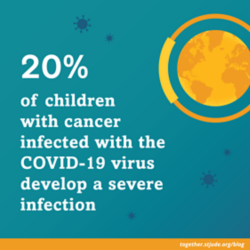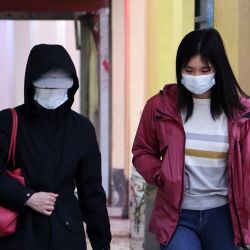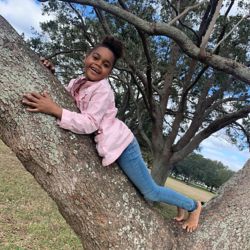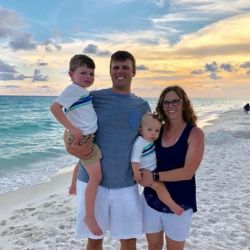HPV Vaccination: Closing the Gaps
During the COVID-19 pandemic, many children missed their regular checkups. That means they may not have had the vaccination against human papillomavirus, called HPV. HPV vaccination is crucial for children and teens. It protects against HPV, which is linked to 6 types of cancer.
Missing out on HPV vaccination is a huge a gap in care. We must work together to close that gap.
An ounce of prevention
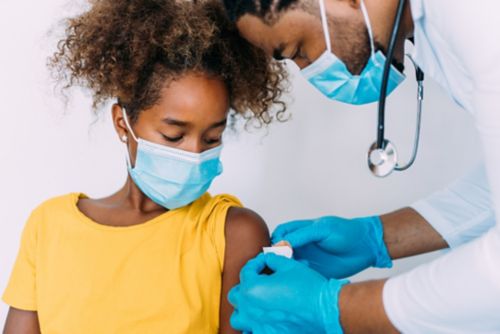
The St. Jude HPV Cancer Prevention Program recommends HPV vaccination for children ages 9-12. Research has shown that this vaccine is safe, effective, and long-lasting.
Protecting a child comes natural for a parent or caregiver. Regular visits to a trusted health care provider add a layer of defense. These visits help keep children healthy—both now and for the long term.
The St. Jude HPV Cancer Prevention Program recommends HPV vaccination for children ages 9-12. Research has shown that this vaccine is safe, effective, and long-lasting. HPV vaccination can protect children from HPV cancers as adults.
When children get HPV vaccinations, their parents have one less thing to worry about.
Closing gaps in knowledge
Your health care provider can help you learn more about HPV and its long-term effects. Questions about vaccinations are normal. Your child’s health care provider and clinic staff can answer your questions and give you the most up-to-date information.
The St. Jude HPV Cancer Prevention Program and the Together by St. Jude™ online resource can help you learn more about HPV vaccination and how it helps prevent HPV cancers.
Parents often talk with each other about HPV. You may want to speak with other parents who have protected their children with the HPV vaccine.
Closing gaps in care
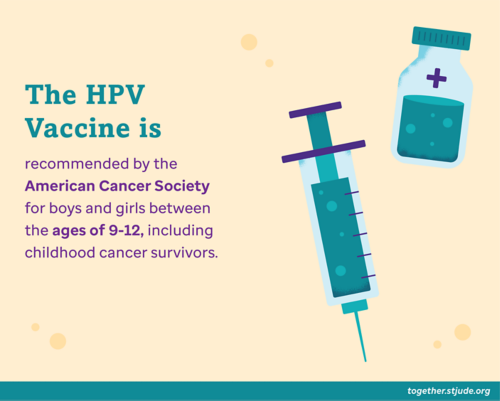
Protecting your child against HPV is easy.
- HPV vaccination is for all children—boys and girls.
- The HPV vaccine is routinely recommended for children ages 11-12 because this is when the immune response is strongest. This is based on 16 years of research and testing.
- Is your child older than 12? Don’t worry. There’s still time to catch up. People can get the HPV vaccine up to age 26. Older teens and young adults may need 3 doses.
The best line of defense is to work side-by-side with your child’s health care provider to get back on track with the recommended vaccine doses.
HPV vaccination is especially important for children with cancer or other life-threatening diseases. Check out this fact sheet for patients and this fact sheet for parents. Then talk to your child’s primary care provider or oncologist about HPV vaccination.
While certain rural communities in the South and Intermountain West see larger disparities in HPV vaccination, children everywhere deserve the same opportunities for protection. The good news is that HPV vaccination is widely available through the Vaccines for Children (VFC) Program. The VFC Program provides free HPV vaccination at no cost to eligible children up to 18 years old.
There is no reason to miss this lifesaving cancer protection. As a parent, you have the power to close the gap with HPV vaccination.


